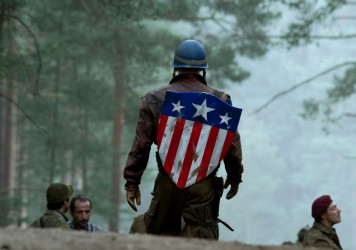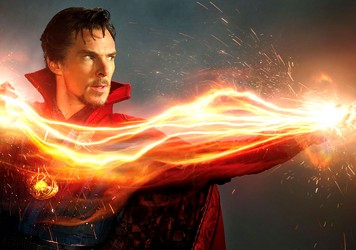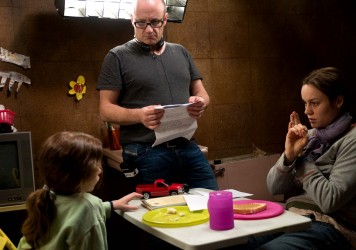
We love Brie Larson. We love Marvel. She’s one of the most promising young actors in the business; they’re the studio responsible for some of the best blockbusters of the last decade. So why do we feel a little uneasy about the fact that Larson has just landed the Captain Marvel gig, which will make her the first female lead of a standalone Marvel movie?
On paper it’s a match made in heaven. Marvel’s upcoming slate looks more diverse than ever with the likes of Doctor Strange and Black Panther, while this year’s Captain America: Civil War, the thirteenth MCU instalment, was one of the studio’s best received and most profitable releases, suggesting that the superhero boom isn’t about to fade any time soon. Joining the most popular and powerful film series in the world right now is a no-brainer for any up-and-coming actor.
But is it really a step up for Larson? So far during her career she’s earned rave reviews and numerous awards for her outstanding comedic and dramatic work, and it’s almost certainly the former that first grabbed Marvel’s attention. Take her scene-stealing turn as Envy Adams in Edgar Wright’s Scott Pilgrim vs the World from 2010. She’s one of the best things about the film, with her cutting put-downs and formidable presence instantly marking her as someone to watch.
Her ascent was confirmed earlier this year when she won the Oscar for her stunning performance in Room. Of course, there are two kinds of reputation in film: critical and commercial. The accolades she received for Room gave Larson a certain amount of industry leverage, but thanks to Marvel she’s poised to acquire the kind of financial clout that is so important in Hollywood. Being a household name may have its downsides yet it also means Larson will soon be big enough to get films greenlit on her own. Captain Marvel will open doors that were once locked and allow her to pursue more personal projects.
If we’re lucky we could see more films like Short Term 12 from 2013. Exploring the daily lives and emotional traumas of the kids and staff at a home for at-risk youths, it’s about as far from Marvel as you could ever hope to get. Larson stars as Grace, one of the care workers, but also someone troubled by her own demons. It sounds like a maudlin tearjerker – a film about ‘issues’ – but in the hands of Larson and writer/director Destin Daniel Cretton it becomes something authentic and powerful.
The worry is that Captain Marvel will lead Larson down a different path. Because while it’s not easy to escape the Marvel machine once you’re part of it, it’s equally unlikely that she will have the time to pursue other ventures. Aside from the actual production of the film itself, being part of the Marvel juggernaut is a full-time commitment. Half the role is performed off-screen: at press junkets, Comic-Con and other fan events. Larson won’t just be Captain Marvel for the two hours she appears on screen. She’ll be Captain Marvel forever.
By landing a major role in a Marvel movie, actors like Larson aren’t simply assuming an alias and slipping into a snazzy costume, they’re taking a sizeable risk. Marvel will make her a star. But it may also rob her of opportunities to develop her acting skills. Here’s hoping she continues to display the passion for her craft and nous she’s shown so far in her short but fruitful career. After all, the blue-screen battles of Marvel blockbusters are a world away from the more traditional acting requirements of Short Term 12 and Room.
Published 29 Jul 2016

By Ivan Radford
The first Avenger is a patriotic symbol of Us vs Them politics in the Marvel Cinematic Universe.

The Sherlock star goes through the looking glass in Marvel’s mind-bending latest.

The Room director reveals the logistical tricks that made filming in a claustrophobic setting possible.